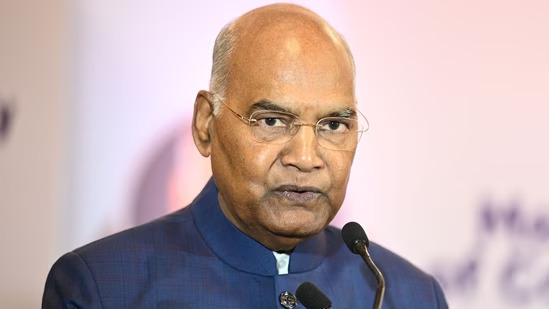Amitha Reji George, Pune
On September 23, the “One Nation, One Election” committee’s first official meeting will be headed over by former President Ram Nath Kovind. The committee will examine and identify potential outcomes for the concurrent elections along with providing a framework.
This development follows the Central Government’s official notification on September 2, which constituted an eight-member committee, appointing Kovind as its chairperson. The committee’s core responsibility is to propose recommendations while taking into account India’s existing constitutional framework and other relevant statutory provisions. The committee’s extensive duties encompass the examination and proposal of solutions for conducting simultaneous elections to the Lok Sabha, state assemblies, municipalities, and panchayats. Additionally, it will outline a structured plan and a reasonable timeframe for the implementation of such synchronised elections.
The committee’s members include Union Home Minister Amit Shah, Congress Lok Sabha leader Adhir Ranjan Chowdhury, former leader of the opposition in Rajya Sabha Ghulam Nabi Azad, former Chief Vigilance Commissioner Sanjay Kothari, Senior Advocate Harish Salve, former Lok Sabha General Secretary Subash Kashyap,former Finance Commission chairman NK Singhi, and Minister of State (Law) Arjun Ram Meghwal, who will participate as a special invitee.
The concept of “One Nation, One Election” has been ardently promoted by Prime Minister Narendra Modi since he came to power in 2014. This proposal seeks to streamline the electoral process, enhance administrative efficiency, and reduce the financial burden associated with elections. The government contends that aligning elections for the Lok Sabha, state assemblies, and local bodies will curtail the recurring “permanent election” cycle.
Kovind, in an address to the Parliament in 2018, “Frequent elections not only burden on human resources, but also inhibit development progress due to the promulgation of the model code of conduct.” (WION)
However, criticisms have surfaced regarding the lack of prior consultations preceding the formation of the “One Nation, One Election” Committee, chaired by former President Ram Nath Kovind. Critics assert that this initiative was introduced without prior deliberation, mirroring the approach taken with other agendas of the ruling party.
